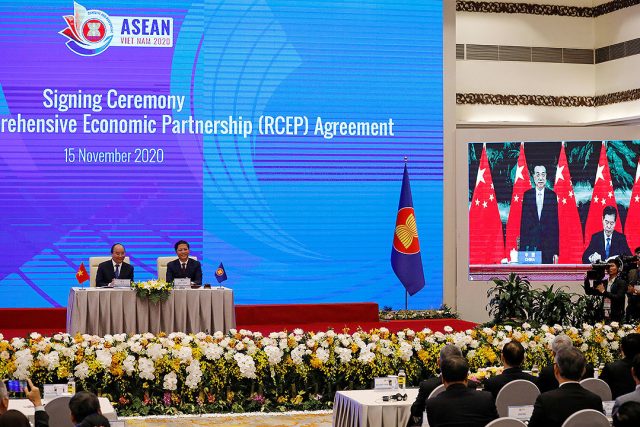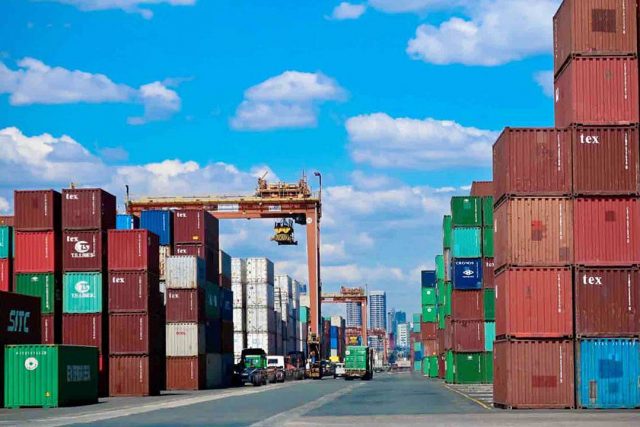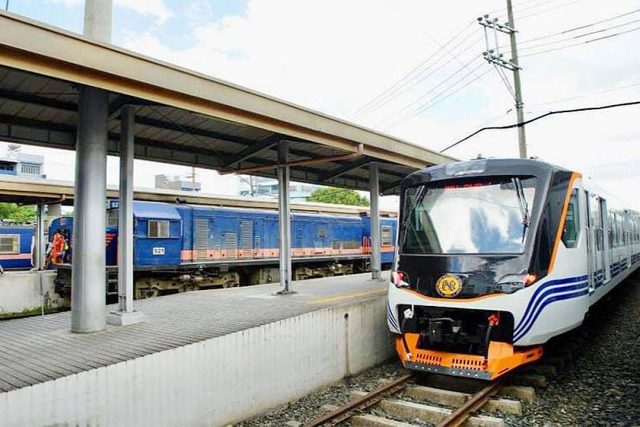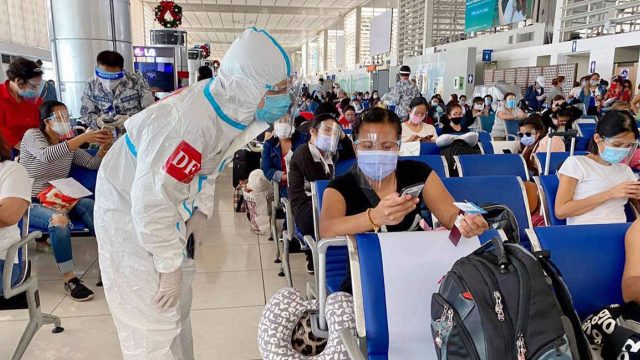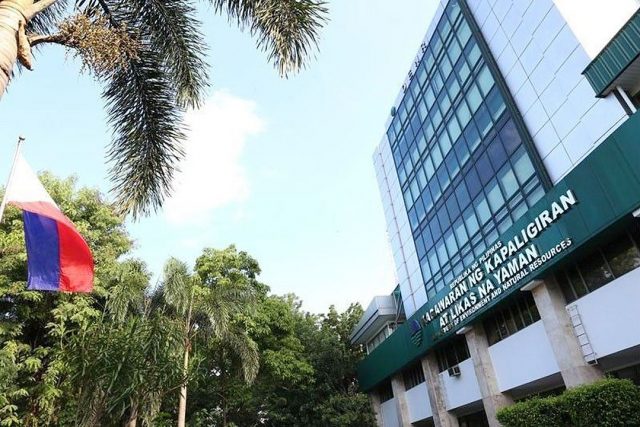American Chamber urges Senate to ratify RCEP trade deal treaty
THE American Chamber of Commerce of the Philippines (AmCham) said the Senate needs to immediately accede to the Regional Comprehensive Economic Partnership (RCEP) treaty after the trade deal came into force on Jan. 1.
In a statement on Thursday, AmCham Executive Director Ebb Hinchliffe said Senate concurrence to the RCEP deal needs to happen soon to allow Philippine businesses and American businesses based in the Philippines to maximize RCEP’s benefits.
“We already know that we are behind as the agreement was implemented on Jan. 1, 2022. We hope to see the country implement the agreement by early 2022,” Mr. Hinchliffe said.
According to Mr. Hinchliffe, the Philippines cannot afford to shun RCEP, as doing so would send a negative message to foreign investors and ASEAN partners.
RCEP is a free trade agreement among ASEAN, Australia, China, Japan, South Korea, and New Zealand.
“We see RCEP as a platform for our members to source cheaper local goods for production and manufacturing, as well as benefit the country’s vital sectors such as the creative sectors, financial services, research and development, information technology and business process management (IT-BPM), professional services, and energy, given the transparent, stable and predictable rules that the agreement provides,” Mr. Hinchliffe said.
Mr. Hinchliffe added that joining RCEP complements the programs and policies of the Philippines such as lower corporate income taxes under Republic Act No. 11534, or the Corporate Recovery and Tax Incentives for Enterprises (CREATE) Act.
“Such initiatives are very much what our members look for when investing in the country. The recent passage also of the amendment to the Retail Trade Liberalization Act is a good signal that the Philippines is working towards a more open, transparent and stable market in the region,” Mr. Hinchliffe said.
Separately, the Department of Trade and Industry (DTI) said the digital economy and business process outsourcing (BPO) sector are expected to receive a boost from RCEP.
Trade Assistant Secretary Allan B. Gepty said in a statement on Thursday that RCEP specifically addresses e-commerce, and will create a conducive environment for electronic transactions, promote cross border trade online, and raise cooperation and capacity-building in the Asia-Pacific.
The DTI said RCEP guarantees that covered businesses will not be required to transfer or relocate computing facilities as a pre-condition for establishing a presence in the region, and that the cross-border transfer of information via electronic means will remain unhampered.
“While this rule is not absolute as it is subject to certain exceptions such as essential security interests and legitimate public policy objectives, having this kind of stability will encourage more investments in the country particularly in the BPO sector whose transactions are mostly cross border and require an enabling environment to provide digital services,” Mr. Gepty said.
The DTI said RCEP also has transparent and effective consumer protection measures for e-commerce and other measures for the development of consumer confidence.
“The RCEP requires parties to adopt or maintain laws or regulations to ensure protection of consumers against fraudulent and misleading practices that cause harm or potential harm to such consumers. The chapter also requires parties to ensure protection of personal information of e-commerce users including through online consumer protection,” the DTI said.
The DTI added that RCEP takes a balanced and inclusive approach to protecting intellectual property rights.
“The commitments and obligations include harmonizing the protections and enforcement of intellectual property rights including provisions relating to technological protection measures and enforcement in the digital environment,” the DTI said. — Revin Mikhael D. Ochave
ANZ Research sees wider Philippine BoP deficit in 2022
THE BALANCE of payments (BoP) deficit will likely widen this year on the back of increased imports, which will also blow out the trade deficit, according to ANZ Research.
“This trend will likely persist in 2022 as well. The upcoming Presidential elections and the attendant emphasis on infrastructure spending, along with high oil prices, will likely keep the import bill heavy,” ANZ Research said in a note.
ANZ Research expects a BoP deficit of $6.7 billion in 2022, equivalent to 1.6% of gross domestic product (GDP). It estimates that the BoP deficit was equivalent to 0.9% of GDP last year.
The ANZ Research estimates are far more negative than those made by the Bangko Sentral ng Pilipinas (BSP), which expects the BoP to be in surplus by $700 million, equivalent to 0.2% of GDP, this year. The BSP estimates that the BoP was in surplus by $1.7 billion, or 0.4% of GDP in 2021.
“The strength in imports looks anomalous at the current stage of the business cycle recovery but it has widened the trade deficit,” ANZ Research said.
The import bill rose 36.8% year on year to a record $10.98 billion in November, while exports rose at a much slower rate of 6.6% to $6.27 billion, according to the Philippine Statistics Authority.
This brought the trade deficit to $4.71 billion in November, wider than the year-earlier $2.14 billion.
ANZ Research said the services trade balance could improve assuming relaxed border controls, which could yield higher tourism receipts.
“Foreign tourism recovery will become discernible from the second quarter if the government’s plan to allow fully vaccinated travelers to enter the country materializes in February,” it said.
In addition, ANZ Research expects further improvement in cash remittance inflows from overseas Filipino workers.
“We expect smaller portfolio outflows in 2022, as foreign investors are already considerably underweight on Philippine assets. Foreign direct investment has remained robust in 2021, and is expected to remain steady in 2022,” it said.
In November, the BoP position was a $123-million deficit, reversing the $1.473-billion surplus posted a year earlier. This brought the year-to-date BoP position to a surplus of $353 million, much smaller than the $11.786 billion from the same period of 2020. — Luz Wendy T. Noble
PHL seeking Chinese bidders for PNR Bicol’s train sets
THE Transportation department said it is seeking Chinese bidders for the rolling stock package of the Philippine National Railways (PNR) Bicol project.
The Department of Transportation (DoTr) is working on four more contract packages of the PNR Bicol line, also known as the South Long Haul Project. The first contract for the design and construction of a 380-kilometer railway from Banlic in Calamba, Laguna to Daraga, Albay was signed on Jan. 17.
“’Yung Package 5 po para sa rolling stock ay nakapag-request na tayo ng shortlist na manggagaling sa China at hinihintay na lang natin ’yan (We have requested a shortlist from China for Package 5, which is for the rolling stock, and we are waiting for a reply),” Transportation Undersecretary Timothy John R. Batan said during a virtual briefing on Thursday.
The department is also preparing to bid out the other remaining contract packages.
“Ito namang packages 2, 3 and 4 natin ay kasalukuyan pong ongoing ’yung design works at preparation ng bidding documents ng ating project management consultant (The project consultant is doing the design work for packages 2, 3 and 4),” Mr. Batan said, referring to China Railway Design Corp.
“Ang procurement ng (packages) 2, 3, 4 and 5 ay (hopefully) maumpisahan by the end of this year (We hope to start procuring those packages by the end of this year),” he added.
According to the DoTr, projects funded by China’s official development assistance, or ODA, go through six stages before they are implemented.
First, the DoTr will request the Department of Finance (DoF) to obtain a shortlist of qualified contractors from China. The DoF will then request the Chinese government to provide the shortlist.
Once the shortlist is provided, the DoTr, through the Procurement Service of the Department of Budget and Management, will initiate the procurement.
After procurement, the DoTr will sign a contract with the winning bidder, followed by a notice to the DoF to apply for a loan from China to finance the signed contract.
The P142-billion design-build contract was awarded to the Joint Venture of China Railway Group Ltd., China Railway No. 3 Engineering Group Co., Ltd., and China Railway Engineering Consulting Group Co., Ltd.
The DoTr said the first 380 kilometers of the PNR Bicol project will span 39 cities and municipalities, four provinces, and two regions. It will feature 23 stations, 230 bridges, 10 passenger tunnels, and a 70-hectare depot in San Pablo, Laguna.
The entire PNR Bicol project consists of a 560-kilometer long-haul rail line connecting Metro Manila to provinces in Southern Luzon.
“Once fully operational, it will cut travel time between Metro Manila and Bicol from the current 12 hours by road to as little as four hours,” the DoTr said.
“Passenger trains will run at a speed of up to 160 kilometers per hour, while freight trains will run at a speed of up to 100 kilometers per hour,” it added. — Arjay L. Balinbin
Agri groups see fish supply as adequate, reject need to import
AGRICULTURE and fisheries organizations said the domestic fish supply is adequate and rejected the need for imports, which the Department of Agriculture (DA) hopes to supply to areas hit by Typhoon Odette (international name: Rai).
“Hindi totoo na walang supply. Nabasa ko ’yung official statement at ginagamit pa rin ’yung dahilan ng Typhoon Odette at mataas daw ang feed, mga factors na hindi totoo sa galunggong (round scad) (It’s not true that supply is tight. I read the official statement justifying the imports, which is using Typhoon Odette as an excuse. It is also citing high feed prices, which should not be a factor for galunggong)” according to Laban Konsyumer, Inc. President Victor A. Dimagiba, speaking at a televised briefing.
“Meron sigurong grupong nagpasok ng importer na kailangan maibenta. Wala ka na daw mabili na local, puro frozen na ’yung mabibili mo. In other words, ’yung issue ng papayagan na import, press release lang ’yon, nandidito na (Importing groups may have already brought in the fish. You can see this in the markets, where the fish available are mostly frozen. In other words, they are putting out press releases about allowing imports. The fish have actually already arrived).”
The DA announced on Jan. 18 that it has issued import certificates for small frozen pelagic fish amounting to 60,000 metric tons for the first quarter.
Farmers group Samahang Industriya ng Agrikultura (SINAG) said that the imports will be more expensive than local catch.
“There is ample supply of local fish and fish products that are much cheaper than the imported galunggong,” SINAG Chairman Rosendo O. So said in a statement.
“Instead of protecting and helping farmers and fishers recover from the recent typhoon, we have a government agency that sides with importers and big traders,” Mr. So added.
In a virtual news conference, Agriculture Secretary William D. Dar reiterated the need for the imports.
“Typhoon Odette caused about P3 billion in damage to the fisheries sector,” Mr. Dar said. “Current global price spikes in petroleum, fish feed, and other inputs are also expected to impact local production and supply.”
“High fish prices continue to contribute significantly to food inflation. In 2021, it was at 7.6%,” he added.
Mr. Dar also cited the closed fishing season as another reason for the supply deficit, adding that closed seasons are vital for fishing stocks to regenerate.
An organization of small fishermen, Pambansang Lakas ng Kilusang Mamamalakaya ng Pilipinas (PAMALAKAYA), said that imports will “drive down the farmgate prices of fish, forcing small fishers to deep crisis and bankruptcy.”
“The existing closed fishing season creates an artificial shortage of fish and inflation (to the) detriment (of) fisherfolk and consumers. We maintain that the shortage of fish is artificial, caused by unregulated and unjust declaration of closed fishing seasons in our productive fishing grounds. But even (with a) closed fishing season, we remind the government that there are lots of fish in the sea; imports (are) unnecessary,” Fernando L. Hicap, PAMALAKAYA chairman, said in a statement.
“Flooding our local markets with imported fish will (do) harm than good to our struggling fishing industry. This liberalization scheme never addresses the country’s crisis in fisheries production. Rather, it is burden to fisherfolk whose products are being outcompeted by imported fish,” Mr. Hicap added. — Luisa Maria Jacinta C. Jocson
Visayan Electric ordered to probe reconnection scams
THE ENERGY Regulatory Commission (ERC) ordered Visayan Electric Co. (VECO), a unit of the Aboitiz Power Corp., Inc., to investigate reports that its personnel are asking for money to reconnect power in areas hit by Typhoon Odette (international name: Rai).
“We have directed VECO to conduct a prompt and thorough investigation of the matter and submit the result to the Commission in writing within 15 days from receipt of our directive,” ERC Chairperson and Chief Executive Agnes VST Devanadera said in a statement on Wednesday.
Ms. Devanadera said that the commission is alarmed over the reports it has received mostly through its social media account about delays in restoring electricity in Cebu being the result of customers who pay bribes receiving priority for reconnecting their power.
The commission also directed VECO to report action taken against those confirmed to have been involved and any other measures to prevent such schemes in the future.
“We enjoin VECO to use the necessary means to obtain thorough, comprehensive, and unbiased findings, including the use of witness testimony when available,” Ms. Devanadera added.
VECO has said it is investigating reports of linemen or contractors seeking money in exchange for priority in restoring power.
“We ask for cooperation from the public not to entertain or participate in these illegal activities. We urge everyone to report these incidents through our Visayan Electric hotline number 230-8326 or send us a direct message on our Facebook page,” VECO said in a statement to the Cebu media on Jan. 7.
It added that power restoration is free of charge and that it charges no priority fee. — Marielle C. Lucenio
Online TIN seen unlocking OFW investments
THE BUREAU of Internal Revenue (BIR) said it will allow overseas Filipino workers (OFWs) to register their tax identification numbers (TIN) online, with a senior legislator saying that such measures will help workers overseas to invest in their home country.
Representative Jose Ma. Clemente S. Salceda of Albay, who chairs the House Ways and Means committee, said he was looking forward for “OFWs who may be particularly interested in investing in Philippine stocks as a means for preparing for their return to the country and to secure the future of their families.”
The BIR requires taxpayer information to be verified in person in Revenue District Offices, denying OFWs who are not in the country the opportunity to open brokerage accounts. Obtaining a TIN also requires a personal appearance, he said in a letter to the BIR in December.
The BIR responded by committing to making the application process a “fully online experience.” It currently allows OFWs to apply for TINs through an authorized representative or via e-mail if the purpose is to contribute to the Personal Equity and Retirement Account, a policy which can be extended to cover the opening of brokerage accounts. — Alyssa Nicole O. Tan
DENR suspends Davao Oriental mining firms over river siltation
THE Department of Environment and Natural Resources (DENR) ordered mining companies to suspend their operations following heavy siltation and water discoloration at the Mapagba and Pinatatagan rivers in Banaybanay.
“I received the report yesterday (Jan. 17) confirming that the river has turned red due to extraction activities. I have instructed our regional office to immediately address the incident and to suspend the operations of the mining company(ies),” Secretary Roy A. Cimatu said in a statement.
The investigation, led by the DENR and its Davao regional office, attributed the extraction activity to Riverbend Consolidated Mining Corp. and Arc Nickel Resources, Inc.
Residents reported the changes observed along the rivers on Jan. 14. Heavy rains are believed to have caused the mines’ silt ponds to overflow, according to the DENR.
On Jan. 17, the miners were served a cease-and-desist order and notice of violation.
Separately, the Mindanao Development Authority’s new chair called for a review of mining operating practices.
“While the minerals industry continues to be cited as among the country’s economic drivers, some industry practices need thorough review and operations require close monitoring,” Secretary Maria Belen S. Acosta said in a statement.
Ms. Acosta said keeping mining operations in check was vital “to prevent pollution and contamination, distortion of the ecological balance and damage to water systems.”
“Economic development and environmental protection should go hand in hand. They should not cancel each other out,” she added.
DENR Regional Director Bagani A. Evasco said further assessment is ongoing to determine possible penalties, operational adjustments, and the extent of environmental damage to the area.
“Our legal team is also evaluating further action with regard to any of the violations,” Mr. Evasco said. “Further evaluation is being conducted as to the extent of environmental impact.”
The local government of Banaybanay said it will be conducting regular monitoring of the area as the mining firm implements measures to address the siltation. — Luisa Maria Jacinta C. Jocson
Certification rules for ceramic tiles complying with old quality standards now in force
THE Department of Trade and Industry (DTI) said certification of ceramic tile inventories produced or imported before new quality standards came into force must undergo a recertification process.
In a statement on Thursday, the DTI noted that Memorandum Circular (MC) 22-01 issued by its Bureau of Philippine Standards took effect on Jan. 11.
The DTI circular provided supplemental guidelines for Department Administrative Order (DAO) 20-09:2020 which required the product certification of ceramic tiles.
According to the DTI, MC 22-01 sets guidelines for the certification of ceramic tiles covered by DAO 20-09:2020, which were manufactured or imported to the Philippines before Oct. 12 and held in inventory by importers, distributors, or retailers.
“DTI issued MC 22-01 to address concerns of both manufacturers and importers on the proper disposition of the remaining inventories of ceramic tiles that are already released and distributed in the Philippine market prior to the implementation of DAO 20-09:2020,” Trade Undersecretary Ruth B. Castelo said.
“With the newly issued supplemental guidelines, we hope that they maximize the opportunity to have their existing inventories of ceramic tiles certified before the market monitoring and enforcement commences next year. With this MC, we also addressed importers’ concerns on product testing for shipments of ceramic tiles intended for single dwelling units or project supply contracts,” she added.
For locally manufactured products, the DTI said manufacturers should apply for Philippine Standard certification for the remaining inventories of ceramic tiles distributed in the market before the effectivity of DAO 20-09-2020.
Importers, on the other hand, need to apply for import commodity clearances on a “per product and per manufacturer basis.”
“In addition, MC 22-01 exempts shipments of ceramic tiles intended for single dwelling units or project supply contracts from product sampling and testing provided that these importations do not exceed 1,800 square meters,” DTI said.
The DTI said market monitoring and enforcement will begin on Jan. 1, 2023 to provide ample time for local manufacturers and importers to comply with the certification requirements.
Holders of non-compliant products by that date will be issued notices of violation and be advised to withdraw these products from the market after a first offense. The next notice of violation will trigger a regular adjudication process. — Revin Mikhael D. Ochave
Philippine COVID cases on downtrend — OCTA
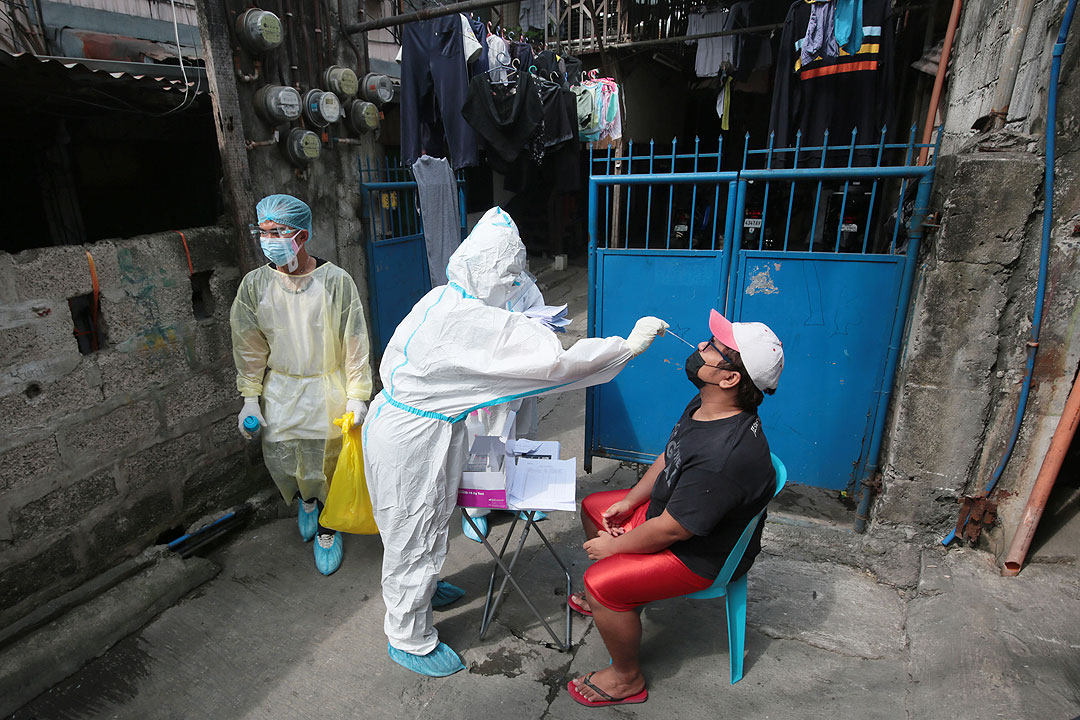
By Kyle Aristophere T. Atienza, Reporter
CORONAVIRUS infections in Manila, the capital and nearby cities were on a downtrend, according to researchers from the country’s premier university.
“The reproduction number in the National Capital Region (NCR) decreased to 1.79, while the weekly growth rate became negative for the first time since Dec. 24 last year,” OCTA Research Group fellow Fredegusto P. David said in a report posted on Twitter on Thursday.
He said the last time Metro Manila had fewer than 10,000 cases in one day was on Jan. 5, when the surge was still accelerating.
“The pattern is very similar to South Africa’s experience of a rapid surge followed by a dramatic decrease in infections,” he added.
“While this is encouraging news, it must be emphasized that NCR remains at critical risk as the average daily attack rate and positivity rate are still above critical levels,” Mr. David said.
The Philippines reported 31,173 coronavirus infections on Thursday, bringing the total to 3.32 million.
The death toll rose to 53,153 after 110 more patients died, while recoveries increased by 26,298 to 3 million, the Department of Health (DoH) said in a bulletin.
It said 43.3% of 73,989 samples on Jan. 18 tested positive for coronavirus disease 2019 (COVID-19), way above the 5% threshold set by the World Health Organization (WHO).
There were 275,364 active cases, 8,424 of which did not show symptoms, 262,168 were mild, 2,979 were moderate, 1,488 severe and 305 were critical.
DoH said 95% of the latest cases occurred from Jan. 7 to 20. The top regions with new cases in the past two weeks were Metro Manila with 8,883, Calabarzon with 6,471 and Central Luzon with 2,783 infections.
It added that 61% of deaths occurred in January, 3% in December and 7% in November.
The agency said 132 duplicates had been removed from the tally, 87 of which were reclassified as recoveries and one was tagged as a death, while 59 recoveries were relisted as deaths. Five laboratories failed to submit data on Jan. 18.
The Health department said 50% of intensive care unit beds in the country had been used, while the rate for Metro Manila was 51%.
The government aims to vaccinate 77 million people by the end of this quarter after a fresh surge in infections spurred by the heavily mutated Omicron variant.
The Philippines has fully vaccinated 56.44 million people as of Jan. 19, while 59.44 million have received their first dose, data from the Health department showed. About 5.61 million booster shots have been injected as of Wednesday.
Health Undersecretary Myrna C. Cabotaje said the country had yet to finalize the guidelines for the vaccination of children aged 5 to 11 years old, which is expected to begin next month.
The Health Technology Assessment Council will issue recommendations as authorities continue to consult experts, she told a televised news briefing.
“We will look at the operational guidelines,” she said. “We might designate specific sites for children five to 11 years old.”
Ms. Cabotaje said the Philippine Pediatric Society and Pediatric Infectious Disease Society of the Philippines have endorsed the vaccination of kids aged 5 to 11.
She said the government might also allow children aged 4 and below to get vaccinated.
“Maybe by the second quarter, around April or May, if there will be a vaccine for 0 to 4-year-old children, and if there are studies and recommendations already,” she said.
Marcos camp bares Senate slate for May general elections
THE CAMP of presidential aspirant Ferdinand “Bongbong” R. Marcos, Jr. on Thursday endorsed 10 senatorial candidates for the May elections.
In a statement, Marcos spokesman Victor D. Rodriguez said the Senate slate includes Antique Rep. Lorna Regina “Loren” B. Legarda, former Defense Secretary Gilberto Eduardo Gerardo C. Teodoro Jr., reelection Senator Sherwin T. Gatchalian, former Quezon City Mayor Herbert Constantine M. Bautista, former presidential spokesman Herminio L. Roque, Jr. and former Public Works Secretary Mark A. Villar.
Also endorsed was Jose Pimentel “Jinggoy” P. Ejercito Estrada, who is facing plunder and graft charges involving his pork barrel funds. The former senator was released on bail in 2017 after spending three years in jail.
Mr. Marcos and running mate Sara Duterte-Carpio also backed lawyer Lorenzo G. Gadon, who has been suspended by the Supreme Court for swearing at a journalist, and Party-list Rep. Rodante D. Marcoleta, one of the lawmakers who voted against the franchise renewal of ABS-CBN Corp. in 2020.
The tandem also endorsed reelection Senator Juan Miguel F. Zubiri, who is also part of the senatorial slate of opposition standard bearer Vice-President Maria Leonor “Leni” G. Robredo.
The list “represents a mixture of seasoned and proven political personalities who have excelled in their respective endeavors,” Mr. Rodriguez said.
Meanwhile, Ms. Robredo said her kind of politics is “so different from what Mr. Marcos is offering.” “My kind of politics is transformative,” she told the ABS-CBN News Channel. “I don’t want patronage politics.”
“There’s so much at stake, but what’s at stake is not just my winning or losing this election but what is the direction that we would want our government to take in the next six years,” she added.
Mr. Gadon, who is making his third bid for the Senate, is a Marcos supporter. The Supreme Court suspended him this month over his foul-mouthed remarks against a local journalist in a video that went viral.
Mr. Gadon has questioned his suspension, which he said was issued without due process.
Mr. Marcoleta is a deputy speaker at the House of Representatives. He is known for cutting the budget of the Commission on Human Rights to P1,000 in 2017.
The Marcos-Carpio team said Mr. Zubiri would boost their position in Mindanao, which is a bailiwick of the Zubiri clan. — Kyle Aristophere T. Atienza






